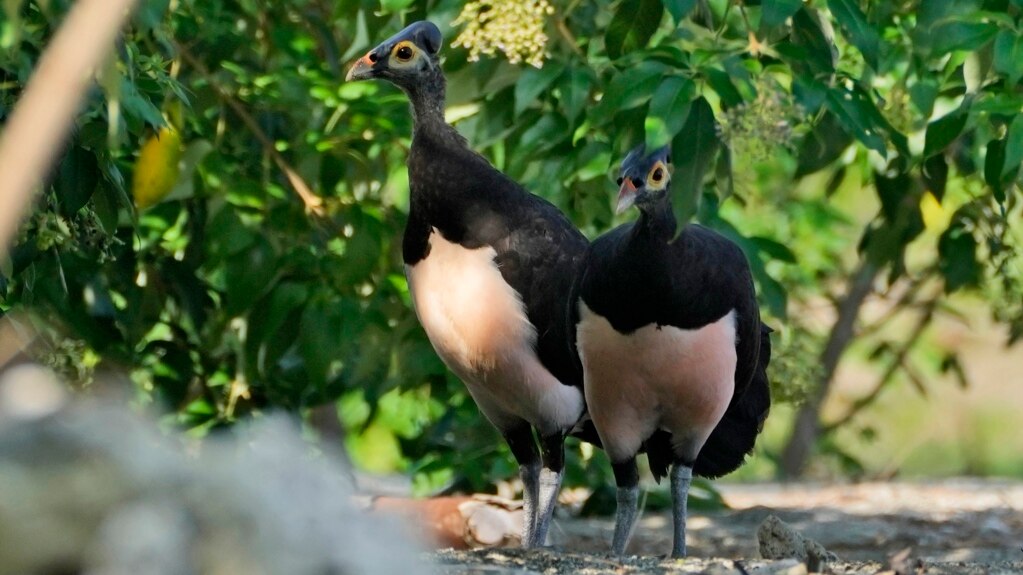An endangered bird in Indonesia could face new threats from development linked to the country’s new capital city.
The bird is the maleo, a tall animal with black feathers and a pink chest. It is native to Indonesia’s Sulawesi island and a few neighboring ones.
The International Union for Conservation of Nature (IUCN) considers the maleo to be “critically endangered.” The environmental group’s Red List identifies wildlife across the world currently facing threats. The IUCN estimates only 8,000 to 14,000 adult maleos remain in the wild.
West Sulawesi has been set up as a “support” area for building activities. The Indonesian government plans to move the nation’s capital from Jakarta to a new city on Borneo island. West Sulawesi and Borneo are separated by an ocean passageway called the Makassar Strait and are just a six-hour boat trip apart.
Support work will take place in areas around West Sulawesi’s capital, Mamuju. The development is expected to include the building of new roads and seaports to be used to transport materials to the new capital, named Nusantara, on Borneo.
Activities include tree clearing, digging, and removing stones. The process already has changed the forest environment on West Sulawesi and is harming maleo nesting areas near the beach.
These latest changes follow others to the birds’ general environment, or habitat, linked to human activities in the area. These changes have made the trip for maleos to lay their eggs increasingly more difficult.
The maleo is considered “critically endangered because the next step is extinction,” said biologist Marcy Summers. She directs the Alliance for Tompotika Conservation, a non-governmental organization working to support maleo conservation in the area. Summers noted that maleo populations had decreased by more than 80 percent since 1980.
Experts do not know how many maleos still live around Mamuju or across West Sulawesi island. The West Sulawesi Forestry Agency was only able to record the presence of nesting grounds in 23 villages based on reports from locals in the area. But of those, only 18 are considered active nesting areas.
“As far as I know, maleo birds are in decline,” said Andi Aco Takdir, chief of the West Sulawesi Forestry Agency. He pointed to several reasons for the decline, including destruction of beach areas, and expanding human development activities.
Takdir said the government has been warning people in the area to stop establishing palm oil operations and to halt all other development around maleo nesting grounds.
Officials said the government is committed to keeping the birds even with massive development to support the new capital city.
Another problem has been thieves, also called poachers. The Associated Press reports that poachers steal maleo eggs from the sand where their parents have hidden them.
Poachers sell the eggs for about $1 to people as food. The eggs are a traditional gift for many people in Mamuju and other parts of Sulawesi.
Muhammad Idris is a local official in West Sulawesi. He told the AP that government officials there are prepared to take steps to protect the maleos even with the new capital development.
Idris said, “Nature conservation must be used as an achievement and (projects) must not be built leaving behind problems.”
I’m Bryan Lynn.

